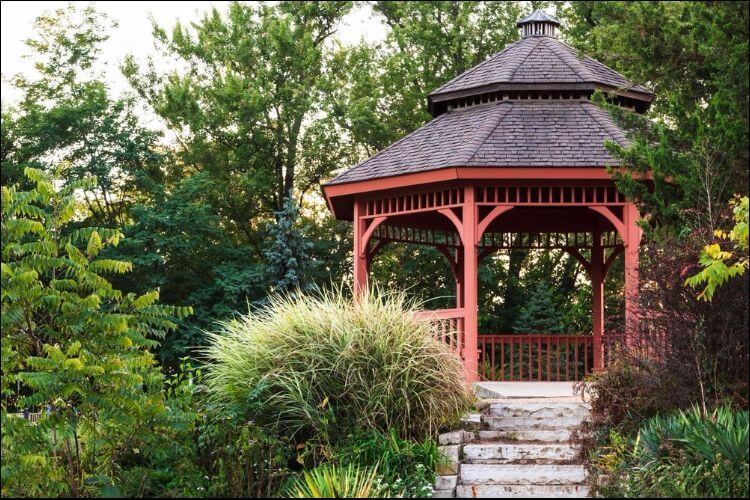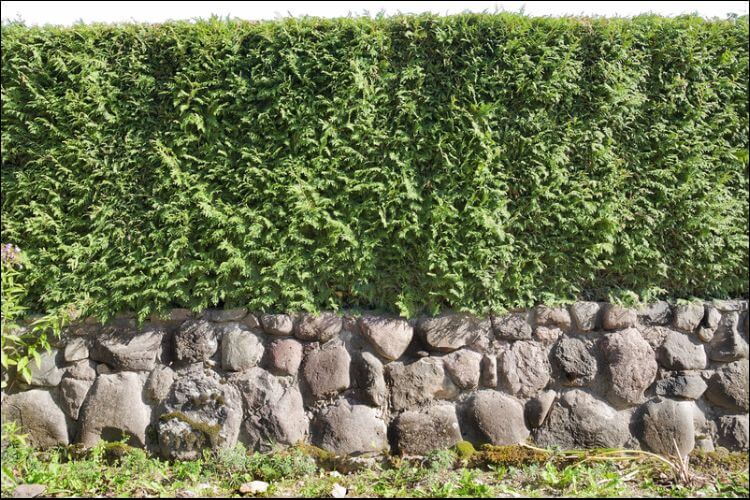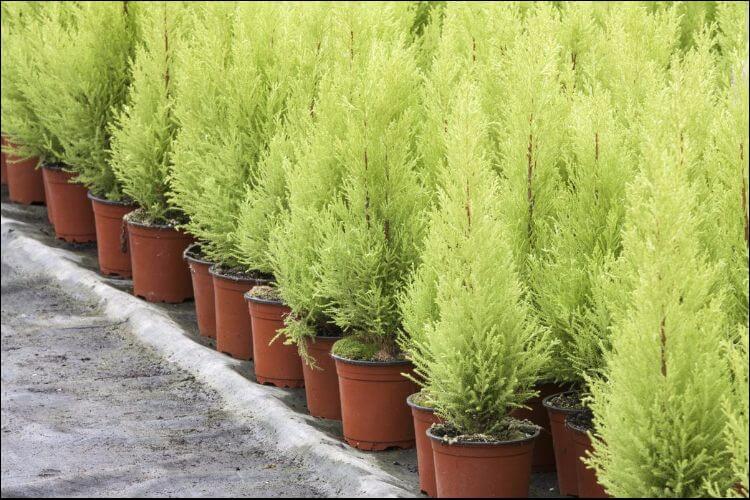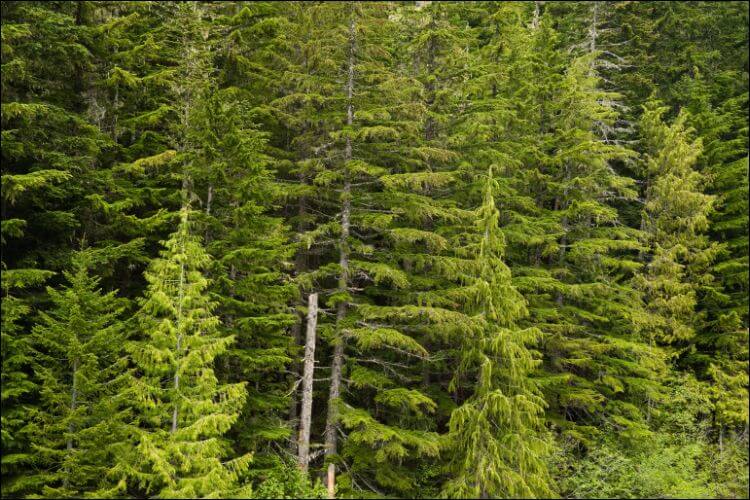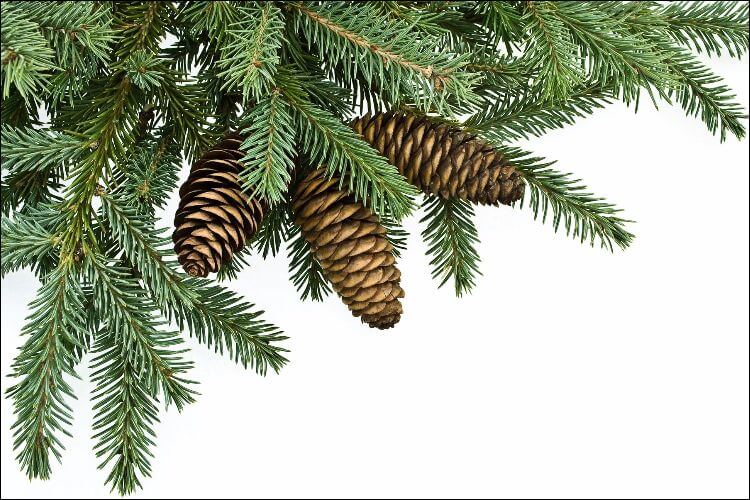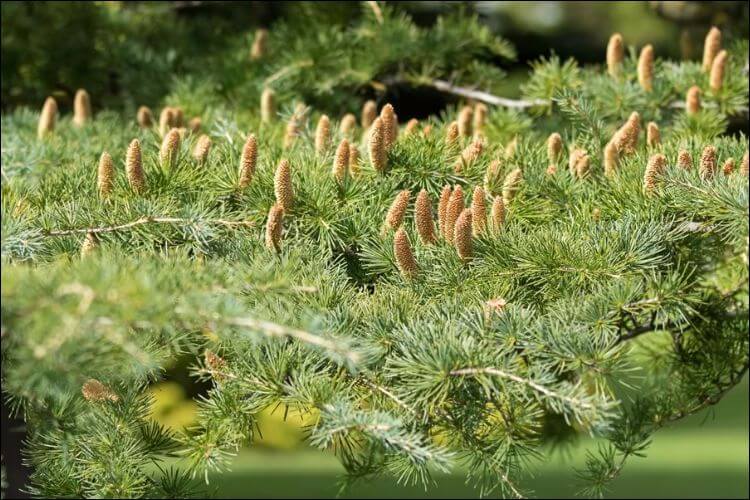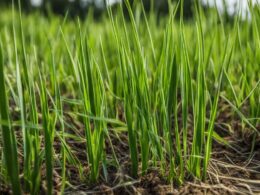It’s easy to create some privacy in your own backyard by just planting some trees or shrubs. These kinds of plants are a nice addition to any space. Besides adding some nice curves and touches to your garden, a screen of trees has some other advantages as well. It protects the landscape from extreme conditions, it improves the quality of the air around your home, and it blocks out the noise. Today we are going to have a look at the best trees for privacy and see which of them you can include in your landscaping.
Best Trees for Privacy to Boost Your Landscape
1. Thuja Green Giant
Even if you don’t know it by name, most likely you’ve already noticed it around you. The green giant trees are evergreens that border plenty of properties. They are getting increasingly popular precisely because of this; they offer a lot of privacy. Moreover, it’s easy to take care of it, they can cover large areas. If you plant them close together, you’ll get an impenetrable screen to secure your backyard.
It can grow to 3 – 5 feet in a year, which means it’s a quick solution to protect your privacy. Thuja adapts to many different soil types and climates, it’s drought-tolerant, as well as disease-resistant. You just need to plant the Green Giants around 6 feet apart and don’t worry about pruning or spraying them.
2. Emerald Green Thuja
The smaller cousin of the Thuja Green Giant, the Emerald one offers a more elegant look. They’re perfect if you want to obtain a tighter barrier or you don’t have too much space available. Given that they grow to 8 – 12 feet, you can simply plant them 3 feet apart and let them develop in a uniform manner, which makes them one of the best trees for privacy.
It’s also one of the most beautiful options you have. When lit by the sunlight, its green shade has emerald reflexes, brightening any space. If you want to have a coherent backyard design, you can also plant just one green Thuja in a pot in front of the door, for instance. Just like the previous options, they don’t need pruning or trimming either.
3. American Holly
One of the easiest ways to solve the problem of adding privacy to your backyard is to plant American holly. Naturally, everybody thinks of holly as the Christmas mistletoe, but the American variety can also be used as a privacy tree. Plant it 4 – 5 feet apart and let it grow into a beautiful hedge. It’s pest- and disease-resistant, but one downside is that it does require additional pruning and trimming. However, it’s not complicated to do it, and you’ll love the border hedge that offers you privacy.
As a matter of fact, the Pennsylvania Horticulture Society gave the Gold Medal in 2001 to this tree for its outstanding ability to adapt to various environments. They can adapt to plenty of different soil types as well, and in spring it will also bloom with beautiful white flowers.
4. Leyland Cypress
Another evergreen that makes the top best trees for privacy is the Leyland Cypress. It resembles the Green Giants a lot, except it’s kind of picky when it comes to growing conditions. It prefers to be planted in the south, but even so, it’s the most popular tree for privacy in the U.S. It reaches 3 – 5 feet in a year, and it presents soft, feathery green leaves displayed symmetrically and uniformly.
It can reach a height of 40 – 60 feet, and a width between 8 – 12 feet. For this reason, it’s important to plant them around 6 feet apart. Usually, they love full sun, but they can adjust to partial shade too.
5. Willow Hybrid
If you’re trying to find a tree that’s not in the evergreen family, you should know that willows are one of the best trees for privacy. The American Willow Hybrid is perfect for a screen. It can grow to 6 feet a year and it forms a full, luscious border. It’s often used for hiding commercial buildings or highways.
The best thing about it is that it can adapt to a plethora of different soil types. It’s recommended that you plant it in rows so that it can reach 35 – 45 feet in height. They can extend to a width of 20 – 30 feet, which means you will get to enjoy a huge screen to protect your privacy. If you plant the willow individually, it can reach a height of 75 feet.
6. Douglas Fir
Scientifically named Pseudotsuga menziesii, the Douglas fir has the same spire-like shape that’s characteristic to evergreens. Often, it’s used as a featured specimen, but you can also mass it as a screen. This species doesn’t like hot and dry winds, but they thrive in moisture (both in the atmosphere and in soil). Depending on the seeds you use, the color of this tree can vary. Most gardeners prefer blue-green types, for instance. It can reach a height of 40 – 80 feet.
7. Eastern Red Cedar
The upright juniper is one of the best trees for privacy because it’s adaptable and it can grow very tall. It can even grow at the edges of the swamps, or on rocky, dry slopes, for example. It has dense branches, which are perfect for creating rural windbreaks or urban screens for privacy. The rich green foliage they present in summer will turn brown-green during winter.
People love it because it grows tall, reaching 40 – 50 feet. However, if you’re going to plant a commercially available cultivar, it may not reach that height.
8. White Pine
Scientifically named Pinus strobus, the white pine can grow to 50 – 80 feet tall, as well as 20 – 40 feet wide. This means that you need to have plenty of space if you want to plant one. However, if you don’t have too much space, you can go for a columnar variety. This stops at 14 feet in width and 20 feet in height. Keep in mind that the white pine is a forest tree, so it has a fast rhythm of growing.
While most evergreens have a rigid look, this species is great if you would love to have a soft texture. Moreover, it has blue-green needles, which means it will look good the entire year. Some of the needles fall to the ground occasionally, which means that the tree is mulching itself.
9. Concolor Fir
Also called white fir, the concolor fir loves the winter cold, as well as hot and dry conditions. It prefers growing in an evenly moist soil, complete with good drainage. This species offers blue-gray needles that have a white luster, which gives its name. The concolor fir also has the conical shape that includes tiered branches. For this reason, it’s great for blocking a view or being planted together with other trees to create an evergreen area. The fir grows to 60 – 80 feet tall, so you can safely consider it one of the best trees for privacy.
10. Norway Spruce
What makes the Norway spruce different from the rest of the options is its shape. Though it has the same pyramidal shape that belongs to plenty of conifers, its horizontal branches tend to reach upward. This makes its growth hang down in style. The maximum height it can reach is 50 – 60 feet, together with a width of 25 – 30 feet. However, the most popular cultivars are shorter.
11. Deodar Cedar
Our next suggestion for the top of the best trees for privacy is the Deodar cedar. It’s a tree that usually grows in a warm climate. It adapts quickly to various conditions and it grows impressively fast. Its dense branching makes it good for creating a privacy screen in your backyard or simply for completing an evergreen design. It comes with blue-green needles and weeping branches that offer an artistic aspect to your space.
12. Yew
The yew is also called the tree of immortality, given that some ancient specimens managed to live thousands of years. People use yews for evergreen landscapes, as foundation plantings or hedges. It is particularly pleasant to the eye in winter, considering its dark green leaves and red berries. This species can grow in sun or shade, and even in poor and dry soils. However, they don’t love soggy soil, so pay attention to that if you decide to plant it. Depending on the species and the cultivar, the heights can vary from 2 to 60 feet.
Conclusion
The list above presents the best trees for privacy you can use for your backyard. In general, if you want to build a screen to protect your space, you should choose trees or bushes that are very tall and wide. Planting them close together is a sure way of delimiting certain areas or protecting the plants in your backyard from wind, noise, etc. Regardless of the species you choose, make sure you inform yourself about the best conditions and the needs each tree has.
Image source: depositphotos.com





